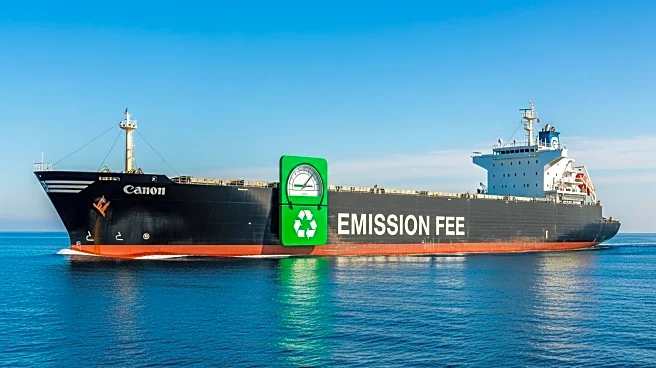What is the story about?
What's Happening?
Nearly 200 shipping companies are urging the adoption of a global fee on greenhouse gases to reduce emissions in the maritime sector. The Getting to Zero Coalition, comprising companies and governments, is pushing for regulations at the International Maritime Organization (IMO) meeting in London. The Trump administration opposes the proposal, viewing it as a global carbon tax on Americans. U.S.-based shipping companies support the fee, seeking a unified system to avoid multiple regional charges. Shipping emissions have grown to 3% of the global total, prompting the IMO to target net-zero emissions by 2050.
Why It's Important?
The proposed global fee represents a significant step towards decarbonizing the shipping industry, which is crucial for global climate goals. If adopted, it could drive investments in cleaner technologies and fuels, benefiting companies committed to sustainability. However, the Trump administration's opposition highlights potential geopolitical tensions, as the U.S. threatens retaliation against nations supporting the fee. The outcome of this proposal could influence international shipping regulations and impact global trade dynamics, especially concerning fuel standards and emissions targets.
What's Next?
The IMO member states will decide on the regulations' implementation in 2027. If agreed upon, the fee will become mandatory for large ships, potentially accelerating the sector's transition to cleaner fuels. The decision could also affect international relations, with the U.S. possibly taking retaliatory measures against supportive nations. The ongoing debate underscores the complexity of balancing environmental goals with economic and political interests.
















